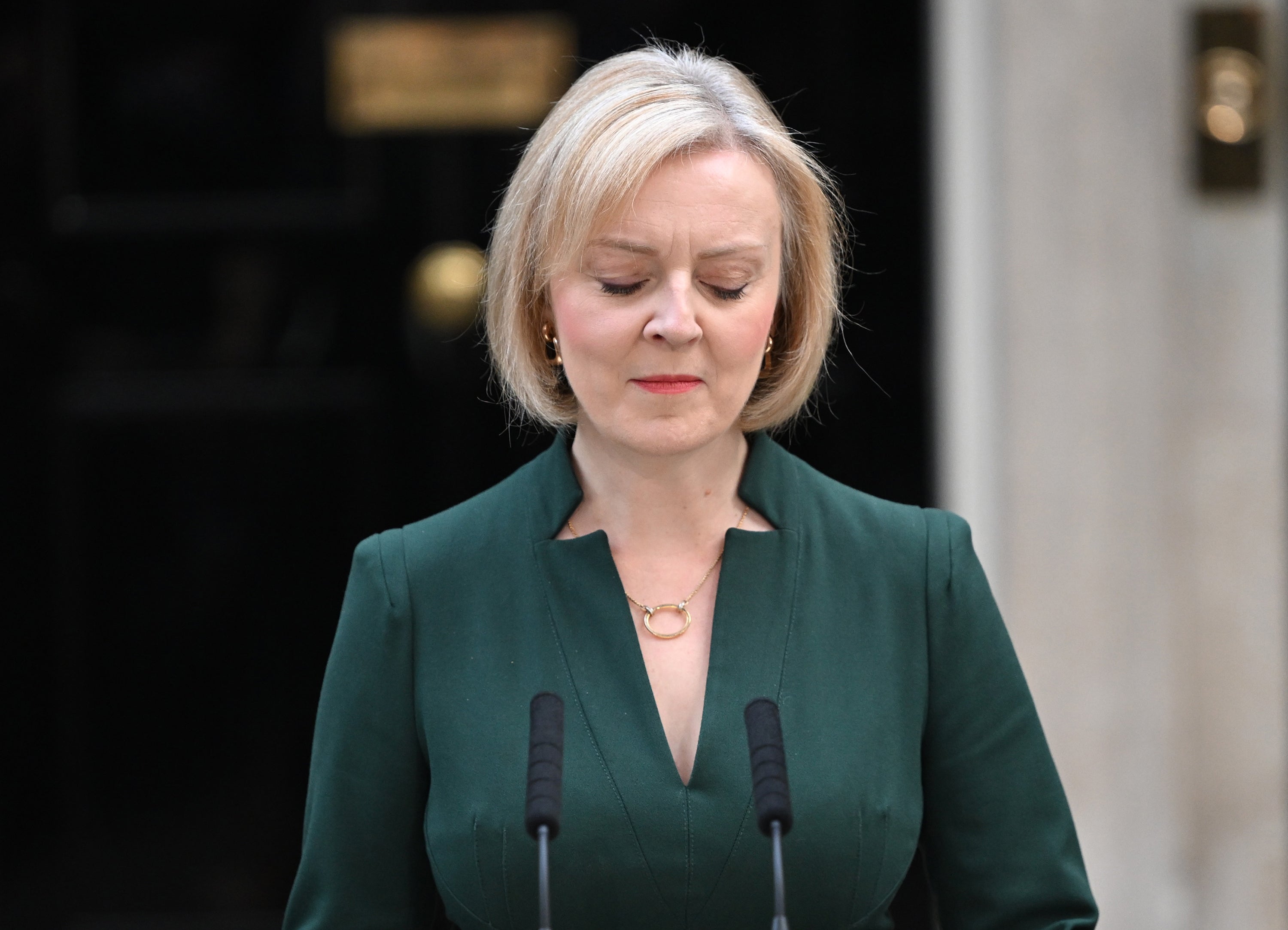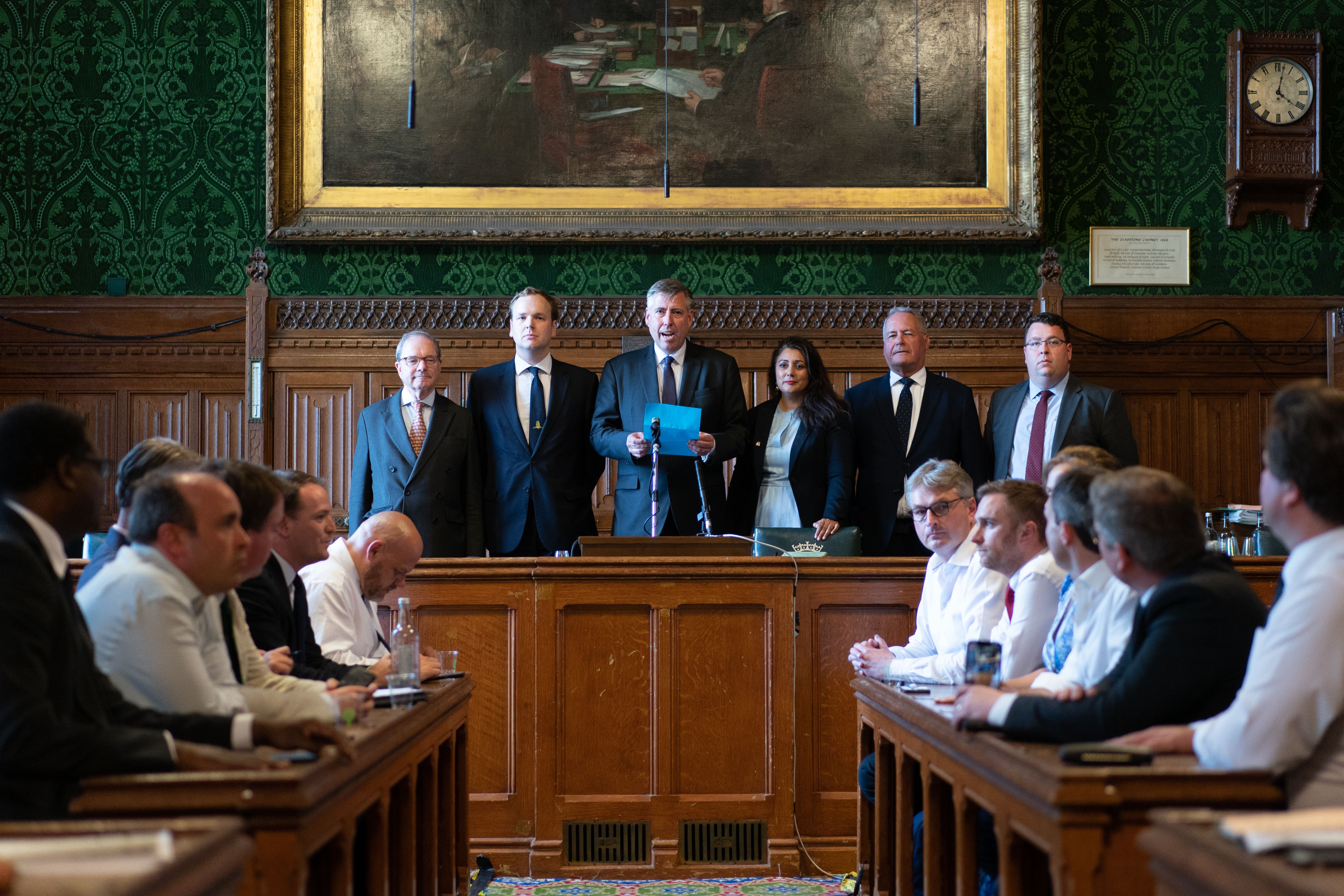
Liz Truss had accepted she would have to quit even before being told how many Tory MPs had submitted letters of no confidence in her, the chairman of the group of backbenchers has revealed.
Sir Graham Brady suggested the then-prime minister knew her time in No 10 was doomed and that she had decided not to fight on before he explained how unhappy backbenchers were – all of which made his job easier.
“I was reaching for my phone when I got a message saying the prime minister had asked to see me,” the 1922 Committee chair told the BBC.
“When I went in to see her with her chief of staff Mark Fullbrook, she asked me the question. She said, ‘It’s pretty bad, isn’t it?’ To which I replied, ‘Yes, it is pretty bad’.”
“She asked the second question, ‘Do you think it’s retrievable?’. And I said ‘No, I don’t think it is’. And she replied that she didn’t, either.”
Ms Truss announced on 20 October she would resign as prime minister after just 45 days in office, characterised by turmoil.
Her mini-Budget with Kwasi Kwarteng sent the markets into a nosedive, threatening people’s pensions and costing him his job, and home secretary Suella Braverman stood down over a security breach.

She was also accused of presiding over chaos when Labour’s opposition day vote on fracking was initially flagged as a confidence vote in the government, leading to claims that Tory MPs were physically manhandled by colleagues in the voting lobby.
As more backbenchers spoke out, it became clear Ms Truss could not retain their confidence.
Sir Graham went on: “I’ve had the unique distinction of having these conversations with three prime ministers, and in many ways it was the easiest, most straightforward because she had come to the same conclusion.”

By contrast, Boris Johnson was “still determined to go on” the night before he announced his resignation in July, Sir Graham revealed.
“He mulled it over after that, and he called me early the next morning to say that he’d changed his mind,” he said.



.png?w=600)



